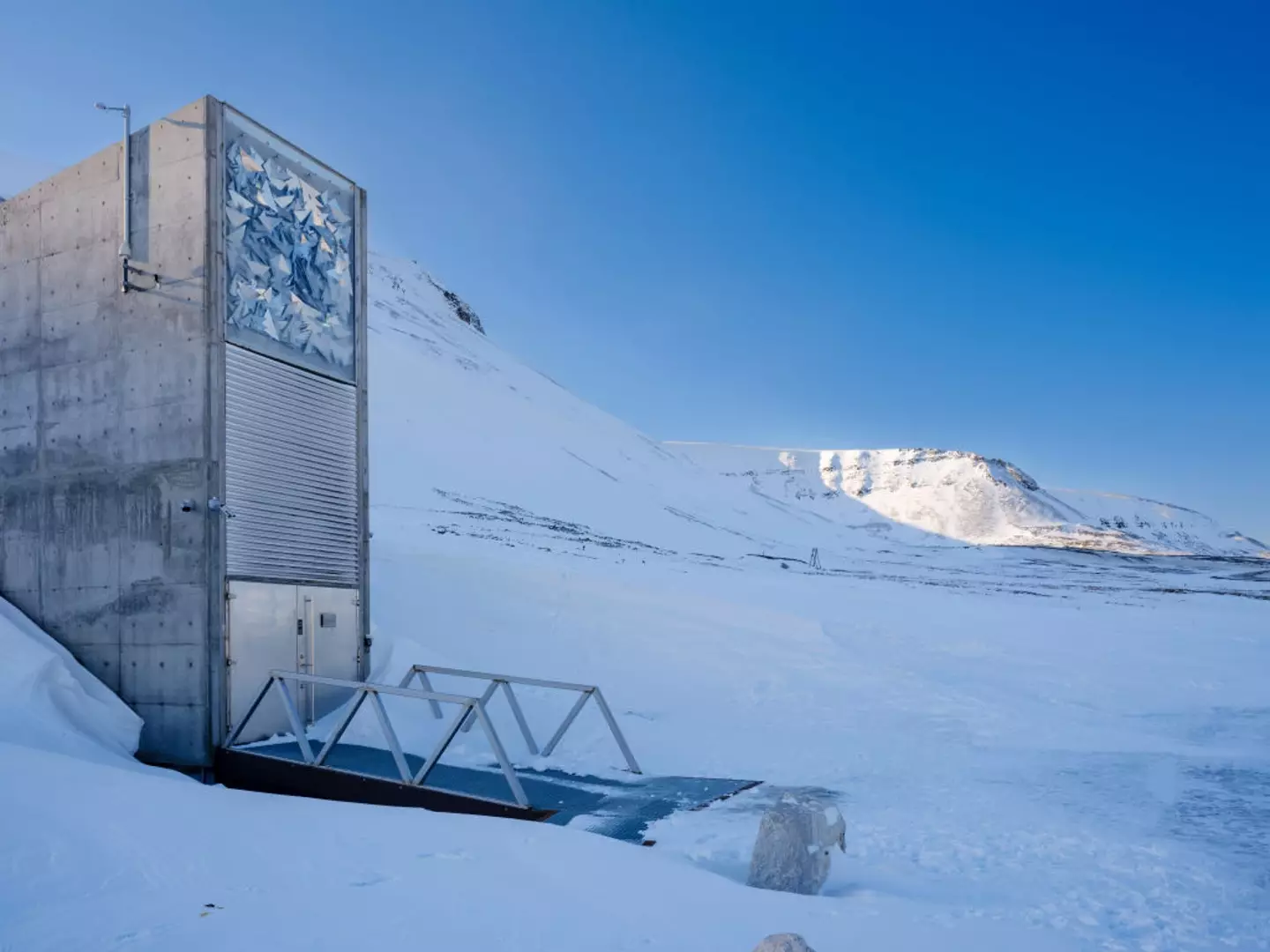
Scientists have created a vault they call the 'safest place on planet Earth' as a safeguarding measure against global warming, but it can only be visited just six times a year.
Climate change is a terrifying prospect that is appearing more real year-on-year, and measures by certain billionaires have led to disturbing predictions that things might just be too late to change.
Thankfully scientists have been taking precautions to prepare Earth for what they consider the inevitable, from more sustainable energy sources to bizarre projects that aim to reflect sunlight away from the Earth.
Perhaps the most extreme, and potentially necessary measure backed by science though is creation of a hyper-secure vault on a mountainside in Spitsbergen, which is located in Norway's Svalbard archipelago.
Advert
The vault itself is 130 meters above sea level and features six lines of security, but it's not humans that will find themselves holes up inside at the end of the world, but seeds.
Inside a storage vault that is around -18⁰C there are samples of nearly half of the world's most important food crops, ensuring that we have a means of survival in significantly worse conditions.
There are crops from Syria, for example, that are resistant against drought, and reserves of food seeds that could easily be lost in extreme weather conditions like floods.
While Simon Jeppson, the seed vault's manager, estimates in an interview with the BBC that this project could sustain itself for 4,000 years, that hasn't stopped some seeds from already being taken out.
Ruined harvests in the Middle East have been saved by the backups provided here, so it's already showing how important it could be when the whole world is suffering the same issues.

It has unfortunately proven that it's not impervious to the dangers of the Earth though, as in 2017 it was reported by World Economic Forum that the entrance to the vault was damaged after permafrost unexpectedly melted and flooded the area.
Thankfully the water was limited to the 15m entrance hall and had no impact on the seeds houses inside, but it does perhaps show that this 'impervious' vault isn't quite as foolproof as once though, and there might need to be reconsiderations if it's really to serve as humanity's savior.
Comments on social media also raise potential concerns, as one user ponders what happens if the key is lost, while another proposes that there should be "at least two such seed vaults adequately distanced from each other" to avoid the dependency being on just one site.
Another points out the rather depressing need for such a vault, arguing that "it's actually quite unsettling thinking that this place even exists, and then the need for it one day might be real."
Hopefully we won't quite reach the extremes that the vault is meant to support, but it's a fantastic resource to have regardless to ensure that seeds are never lost forever.
